It’s hard to imagine that a country as small as Belize can contain such vastly different environments, which we were lucky enough to experience. The rainforest and the reef are both such fascinating views into the diversity of life, each with their own unique organisms that we humans depend on. Every time we saw something we didn’t recognize, I couldn’t help but wonder if we were the first people to ever come across it, since the sheer number of organisms in the rainforest and reef make that a possibility each time we stepped out onto the field. Even though I’ve always known how important both of these ecosystems are, I never really understood the impact they have on us until I experienced them through the eyes of a biologist.
Despite this similarity, these ecosystems were still so different. We faced unique problems in each environment that often required us to think outside of our comfort zone to answer the questions we posed. Each time we tried to solve a question, we encountered multiple other problems that we had to come together to find a solution for. In the rainforest, this was often because of just a lack of knowledge about all the organisms that were there, like in To Pee or Not to Pee with our vast number of insect morphologies. In the reef, the main problem was learning how to collect data while snorkeling. Communication became so much harder underwater and making sure that you were identifying the right organism became more complex. Despite these challenges, we always worked together to find the best solution.
I came into this course with pretty much no idea what to expect, which I think was a good thing because I never would’ve been able to guess the crazy things we’d experience. I expected to learn about the rainforest and the reef, but we also learned so much about living in research stations, caring about the environment, and working together as a group. At first, my least favorite part about this trip was how isolated I felt being in the rainforest with no internet and no way to contact anyone outside the group. However, this became less and less of an issue as the days went on and actually became something that I enjoyed. We became really close as a group and I felt like I learned so much about everyone because of how close we were to each other. Working in such a close knit group became my favorite part of the course because we were able to joke and talk with each other so comfortably. I’ll always remember this group as some of the greatest people that I’ve met at Rice.
There are a lot of things that I learned from this trip that I’ll remember for years to come. One was that despite how much you think you know about conservation and protecting the environment, there’s always more to learn and experience. Our marine debris project really showed me just how much more work we have to do to clean up the reefs and protect them for future generations. The second one is that there’s always more to an environment that you don’t always see at first. From the leaf cutter ants to the camera traps we set out, we were always finding out about hidden worlds that, even though we didn’t see them at first, still hold such importance. The last thing that I learned comes from something Andressa mentioned to me in Las Cuevas. She said it was crazy how this trip had shown that literally anyone can become friends. Despite our different backgrounds and experiences, all it took was a love for nature for all of us to become close friends. I was surprised by how true this was but extremely grateful that it was.
Overall, this course was everything I hoped it would be and more. I’m extremely impressed that everyone was able to put up with my terrible jokes and lame stories for two weeks, so kudos to all of you guys. Everyone on this trip and everyone we met in Belize played such a huge role in making this trip so memorable. There’s really no way to end this but with a culmination of my worst joke this trip:

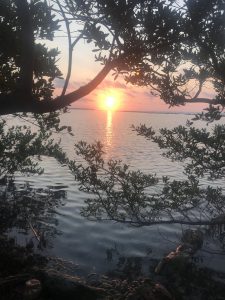
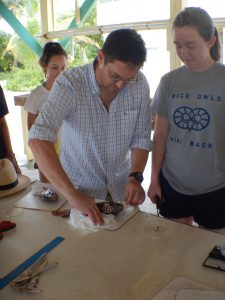
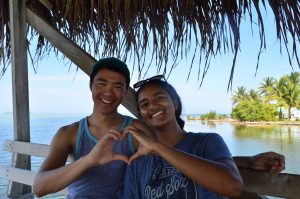
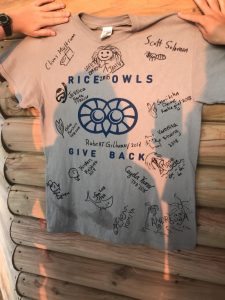 No corallimorphs, zoanthids, or anemones seen today
No corallimorphs, zoanthids, or anemones seen today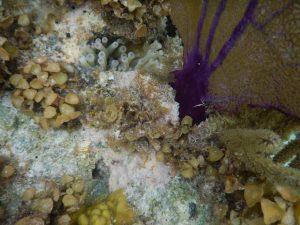
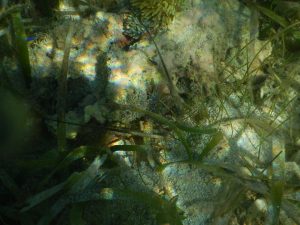

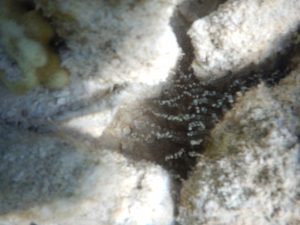
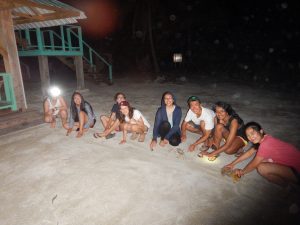

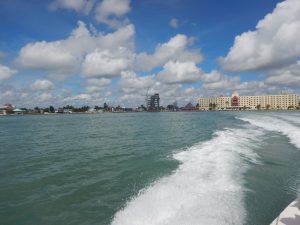
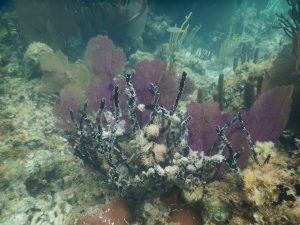

 No spiders or corallimorphs, zoanthids, or anemones seen today
No spiders or corallimorphs, zoanthids, or anemones seen today
